Postdoctoral Fellowship Programs
Unique among postdoctoral fellowships, the Cornell Atkinson Postdoctoral Fellowship funds highly motivated recent PhDs to conduct projects under the mentorship of a Cornell faculty host and an advisor from an external partner organization. Fellows hold academic appointments at Cornell University for two years. Each fellow receives individualized and cohort-level support, including the Sustainability Leadership Program’s workshops in professional development, career strategy, communications training, and collaborative leadership (application information below).
Via the EDF-Cornell Atkinson Postdoctoral Fellowship, Cornell faculty collaborate with scientists at the Environmental Defense Fund to propose a collaborative project to be executed by a postdoctoral fellow. Fellows hold staff appointments at the Environmental Defense Fund for up to two years (read program and application information). As with Cornell Atkinson Postdoctoral Fellows, we invite these fellows to participate in the Sustainability Leadership Program.
How to Apply
Eligibility:
- Graduate students who have or will receive their PhD within two years prior to the start date of their research.
- Research must be aligned with Cornell Atkinson’s four thematic areas
The 2024 Cycle Is Closed:
- Previous Request for Proposals
Questions or More Info:
Selections
Fengyi Guo
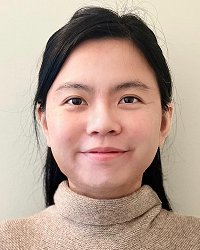
Education: Ph.D. ’24, Princeton University
Cornell Faculty Mentor: Andre Dhondt, Cornell CALS/Lab of Ornithology
External Adviser: Bridgett Costanzo, USDA
Themes: Advancing One Health
Sandra Klemet-N’Guessan
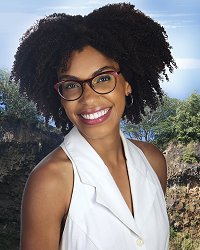
Education: Ph.D. Candidate ’24, Trent University, Canada
Cornell Faculty Mentor: Peter McIntyre, Cornell CALS/Ecology & Environmental Biology
External Adviser: Kevin Obiero, Kenya Marine and Fisheries Research Institute
Themes: Increasing Food Security
Ashish Kumar
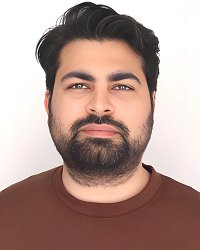
Education: Ph.D. ’22, Indian Institute of Technology Bombay
Cornell Faculty Mentor: Joe McFadden, Cornell CALS/Animal Science
External Adviser: Bharat Kakade, BAIF Development Research Foundation, India
Themes: Increasing Food Security
Gisselle Vila Benites

Education: Ph.D. Candidate ’24, Clark University
Cornell Faculty Mentor: Lori Leonard, Cornell CALS/Global Development
External Adviser: Renzo Piana, Instituto del Bien Común, Peru
Themes: Increasing Food Security
Four emerging scholars were selected in 2023 - announcement
Kendra Kintzi
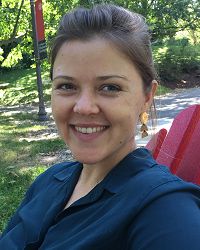
Education: PhD ’23, Cornell University in Development Sociology
Cornell Adviser: Philip McMichael (CALS)
External Partner: Jerome Hodges (Jain Family Institute)
Themes: Accelerating Energy Transitions, Reducing Climate Risks
Divya Solomon
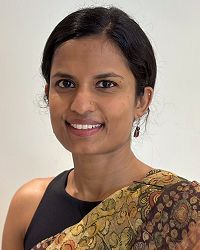
Education: PhD ’23, University of Michigan, Ann Arbor in Resource Policy and Behavior
Cornell Adviser: Chris Barrett (JCB/Dyson School, CALS)
External Partner: Chellattan Veettil Prakashan (Cereal System Initiative for South Asia)
Themes: Increasing Food Security, Reducing Climate Risks
Margaret Swift
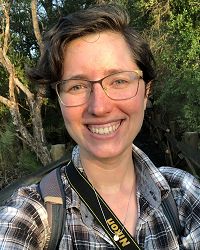
Education: PhD ’23, Duke University in Environment
Cornell Adviser: Steven Osofsky (CVM)
External Partner: Robin Naidoo (World Wildlife Fund)
Theme: Advancing One Health
Michael Vega
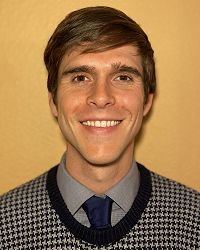
Education: PhD ’22, Colorado School of Mines in Civil and Environmental Engineering
Cornell Adviser: Mathew Reid (ENG)
External Partner: Varunseelan Murugaiyan (International Rice Research Institute)
Themes: Increasing Food Security, Reducing Climate Risks
Cornell Atkinson selected four emerging scholars in 2022 - announcement
Maia Dedrick
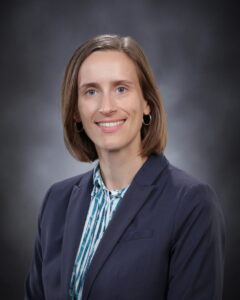
Education: PhD ’19, University of North Carolina at Chapel Hill
Cornell Adviser: John Zinda (CALS)
External Partner: U Yits Ka’an (Mexico)
Themes: Increasing Food Security, Reducing Climate Risks
Marwan Osman
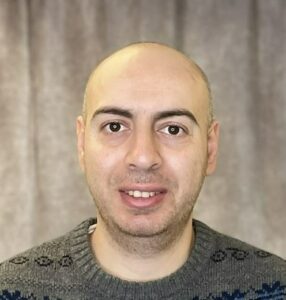
Education: PhD ’15, Lille University
Cornell Adviser: Kevin Cummings (VET)
External Partner: Khaled El Omari (Chamber of Commerce, Industry, and Agriculture of Tripoli and North Lebanon)
Themes: Advancing One Health
Subhashree Navaneetha Srinivasagan
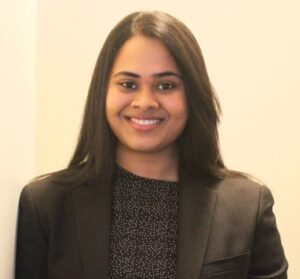
Education: PhD ’21, North Dakota State University
Cornell Adviser: Quirine Ketterings (CALS)
External Partner: RSK ADAS Ltd.
Themes: Increasing Food Security
Andrew N. Stillman
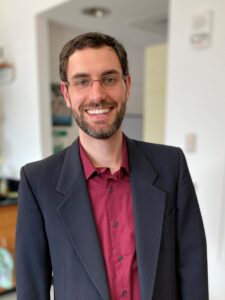
Education: PhD ’21, University of Connecticut
Cornell Adviser: Viviana Ruiz Gutierrez (Lab of Ornithology)
External Partner: USDA Forest Service
Themes: Advancing One Health
Three Postdoctoral fellows were selected - announcement
Cindy Kaiying Lin
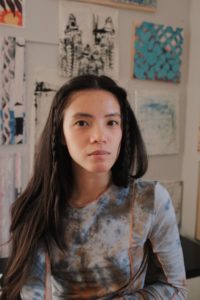
Education: PhD ’21, University of Michigan, Ann Arbor
Cornell Advisers: Steven J. Jackson (CIS/Information Science)
External Partner: Radiant Earth Foundation
Themes: Reducing Climate Risks
Stephen Jane
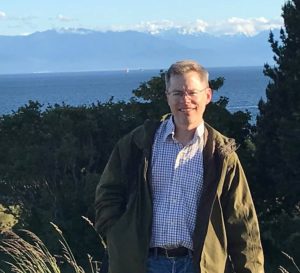
Education: PhD ’20, Rensselaer Polytechnic Institute
Cornell Adviser: Peter McIntyre (CALS/Natural Resources & the Environment)
External Partner: United States Geological Survey (USGS)
Theme: Reducing Climate Risks
Katie Epstein
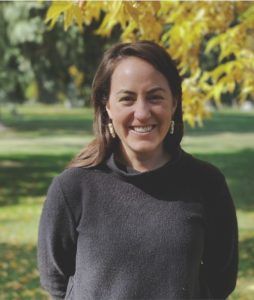
Education: PhD ’20, Montana State University
Cornell Adviser: Bruce Lauber (CALS/Natural Resources & the Environment)
External Partner: Wildlife Conservation Society
Theme: Advancing One Health
Three Postdoctoral fellows were selected.
Jesse Rodenbiker
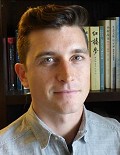
Education: PhD ’19, University of California, Berkeley
Cornell Advisers: Cliff Kraft, John Zinda, and Raymond Craib
External Partner: WWF Hong Kong
Theme: Advancing One Health
Start Date: January 2020
Dr. Rodenbiker began studying sustainability and urbanism in China as an MA student at the University of Oregon. He went on to complete his doctorate at University of California, Berkeley with a dissertation called “Ecological States: Nature Conservation and Urban Development in China.” This project explores the history of ecology in China, urban-rural land governance, and the politics of peri-urban displacement. His ongoing research continues to reconceptualize sustainable development through urban-rural interconnectivity, conservation planning, and sustainability practices. Before beginning at Cornell University, Dr. Rodenbiker was a Visiting Assistant Professor in the Department of Geography at Rutgers University. After his Postdoctoral Fellowship, he intends to continue research and teaching.
Sustainable Maritime China
China is the world’s largest producer and consumer of marine fish, which includes both domestic aquaculture and catch from distant water fishing (DWF) fleets. With global fisheries overfished at a rate of 85 percent of global fishing stocks, China’s role in oceanic environmental governance and the health of the world’s oceans is undeniably important. Rodenbiker’s research project will explore China’s maritime activities internationally and domestically, considering economic, ecological, and political factors to make fisheries more sustainable. The project will also address measures to protect endangered wildlife, particularly those threatened through poaching for fish maw, the dried air bladder of large fish sold as one of the “four treasures” of traditional Chinese seafood cuisine.
His research will assess the interconnections between urban consumption of endangered fish in Hong Kong, fisheries and trade on a global scale, as well as open ocean illegal, unreported and unregulated fishing (IUU). Rodenbiker’s study will take a three-pronged approach to address the urban biophysical metabolism of fish maw and the global political ecological forces precipitating this environmental crisis.
First, he will employ genetic testing at “Dried Seafood Street” located in the Sheung Wan area—the key dried fish trading site in Hong Kong—to determine the species and provenance of fish maw on the market. This will be the first such genetic study of fish maw in Hong Kong markets and will be carried out in partnership with WWF Hong Kong.
Second, he will conduct interviews with Hong Kong’s Agriculture, Fisheries, and Conservation Department, China’s Ministry of Agriculture, DWF fishing companies, and Hong Kong traders regarding the political economy of fisheries. In addition, he will carry out surveys, interviews, and ethnography with Hong Kong residents on the cultural politics of consuming fish maw.
Dr. Rodenbiker will also conduct interviews with marine conservation practitioners across national contexts to elucidate the challenges to maintaining sovereign control over regional fishing territories, such as EEZs and Marine Protected Areas (MPA). Through this three-pronged approach, his work aims to untangle the biophysical, political economic, social, and regulatory forces contributing to unsustainable urban consumption of sea life in Southern China and species endangerment on a global scale.
“My project is inherently interdisciplinary,” says Rodenbiker. “Sustainable Maritime China intersects with the natural sciences, social sciences, and humanities because problems of global sustainability require multiple ways of understanding and addressing socio-environmental interactions. The Cornell Atkinson Postdoctoral Fellowship in Sustainability facilitates interdisciplinary connections with Cornell faculty, as well as partnerships with local NGOs. These cross-cutting collaborations are essential to the conceptual and practical work of sustainability.”
Publications related to this research project are available in Society and Space, China Dialogue Oceans, and in preparation for Global Environmental Change. In addition, Rodenbiker is completing a book manuscript for Cornell University Press based on extensive fieldwork in China titled, Ecological States: Politics of Sustainable Urbanization in China. Learn more at his research website.
Juliet Lu
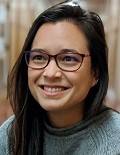
Education: PhD ’20, University of California, Berkeley
Cornell Adviser: Philip McMichael
External Partner: Mekong Region Land Governance Project
Theme: Reducing Climate Risks
Start Date: August 2020
Juliet Lu is dedicated to driving global rubber supply chains to be more sustainable and inclusive. Specifically, her PhD dissertation documents how Chinese agribusiness firms adapt to new social and political challenges and affect trajectories of sustainable development as they move beyond China’s borders. She has a keen interest in how Chinese rubber investments transform landscapes, livelihoods, and state control in the Sino-Lao borderlands.
In contrast to portrayals of Chinese capital as predatory, Lu has found that Chinese companies struggle to obtain land in Laos and often bow to the demands of local authorities and Laotian land users. In her research, Lu has demonstrated a far more complex, contingent relationship between Chinese investors and Laotian smallholder rubber farmers.
Wheels of Change: Engaging Chinese Firms in Sustainable Rubber Supply Chain Initiatives
Over a two-decade boom, monoculture rubber plantations expanded dramatically across Southeast Asia, driving mass clear-cutting of some of the world’s most biodiverse, carbon-rich forests. Responding to intense public pressure, six of the top global tire companies announced initiatives to make their supply chains more sustainable between 2016 and 2019. These sustainable supply chain initiatives are an increasingly popular approach to addressing social and environmental issues, in part because they target whole networks of actors instead of individual nodes.
However, the rubber supply chain is particularly polarized. Although smallholders produce 85 percent of the world’s rubber, mid-stream (processing and export) companies, particularly Chinese agribusiness firms, exercise increasing control over the rubber supply chain more broadly. Curbing rubber’s contribution to deforestation and climate change will therefore hinge upon engaging upstream natural rubber suppliers in the region, including Southeast Asia’s vast army of independent smallholders, and the Chinese firms that have moved into planting and processing across the region. However, while most environmental and social justice advocacy groups have corporate engagement strategies for targeting established market firms, they struggle to engage firms from emerging market countries, like China and Vietnam, which have come to dominate rubber supply chains.
Lu will examine this new challenge facing Chinese rubber companies today: the public push for sustainable rubber production. The central objective of Lu’s project is to understand how sustainable rubber initiatives will be implemented, and to identify strategies for constructively engaging Chinese rubber sector actors and smallholder farmers to enact change. Lu is partnering with Oxfam International and The Mekong Region Land Governance Project (MRLG) in this work.
The global movement for sustainable rubber is new and rapidly evolving, and the research Lu plans to conduct would be impossible without working in close partnership with civil society actors on the ground in the Mekong Region. In academia, connecting with civil society groups, and especially producing tools and outputs that respond directly to their needs and questions on their more rapid timeline, is often respected but rarely rewarded or systematically supported. Lu feels this reflects the unique ethos of Cornell Atkinson’s mission to catalyze collaborative and solution-oriented research. She developed her application in regular consultation with her civil society partners, which shaped a very different vision for her research program than she might otherwise formulate. Lu’s research design is rooted in urgent questions that need answers and the concrete outputs she proposed serve the needs of her civil society partners first and foremost. All of the qualities of Cornell Atkinson, combined with Cornell’s long history of supporting cutting edge, applied research in the fields of land politics, agriculture, and sustainable development, make this particular fellowship the best place for this project and for Lu as a scholar.
Sara Perl Egendorf
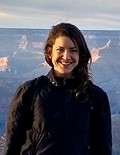
Education: PhD ’20, CUNY Graduate Center, New York
Cornell Adviser: Jenny Kao-Kniffin
External Partner: The NYC Mayor’s Office of Environmental Remediation
Theme: Increasing Food Security, Reducing Climate Risks
Start Date: August 2020
Sara Perl Egendorf (“Perl”) (she/her pronouns) was born and raised on unceded Lenape land (known as New York City), where she continues to learn from soils and people who work with them. Her PhD research at the City University of New York (CUNY) developed a multi-scalar systems approach for limiting exposure to lead (Pb) in soil, particularly by constructing new soils with the NYC Clean Soil Bank. As a Postdoctoral Fellow with the Cornell Atkinson Center for Sustainability, she uses a range of biogeochemical and participatory action research methods to study bacterial and fungal communities in newly constructed soils, and the wide-ranging impacts these soils have. In collaboration with many experts outside of academia, she conducts experiments on the ways urban soils can mitigate climate change and promote food justice, with the aim of co-creating knowledge platforms that document and amplify the vital impacts of urban soils and urban growers.
Greening the Smart City: Developing an Internet of Things (IoT) Platform for Enhancing Urban Soil Ecosystem Services, Food Justice, and Climate Change Mitigation
Cities face many environmental challenges, and one globally ubiquitous yet drastically underexamined issue pertains to urban soil. Cities do contain soil; even New York City (NYC) has 36 percent of its surface covered by this life-supporting matrix. The heterogeneities of urban soil are vast, and yet in metropolitan areas throughout the world, they share one commonality: urban soils hold the legacy of contaminants such as lead (Pb), arsenic (As), polycyclic aromatic hyrdocarbons (PAHs), and many others. To mitigate exposure to such toxicants with life-altering and life-shortening effects, contaminated soils must be removed or at least covered. New soils (known as Constructed Technosols) are urgently needed to accomplish this goal.
The NYC Mayor’s Office of Environmental Remediation (OER) has proposed a solution to this problem, the first of its kind in the United States. OER created the Clean Soil Bank (CSB), using deep excavated glacial sediments from development sites in the city for various beneficial and resiliency purposes. Since 2014, Egendorf has been the lead researcher examining the use of these sediments mixed with compost as growing media for urban agriculture and horticulture. Preliminary research shows that these soils provide adequate structure and function to mitigate contaminant exposure and support a wide range of ecosystem services including greenhouse gas sequestration, reduced storm-water runoff, reduced heat island effect, increased biodiversity, and increased food production and access. Soils are known to promote these ecosystem services, but the actual impacts of these Constructed Technosols have not yet been quantified, and many questions about their unique compositions remain unanswered.
While this program can and should serve as a model for cities throughout the country and the world, it is not yet fully operational. OER is the primary external collaborator on this proposal because their goal is to have the city implement this program, and they recognize the need to gather more data before this can occur. Data must be gathered on various scales: on the biological communities and mineralogical associations comprising these soils; on the differences or similarities between CSB soils with other soils used for urban agriculture; on the ecosystem services provided by this program; and on the cost savings and societal benefits. These data must not simply be gathered – they must also be co-determined by community partners, so that they are accessible, shared, and understood by practitioners, agencies, and decision makers.
Egendorf applied to Cornell Atkinson Postdoctoral Fellowship because of the Center’s interdisciplinary emphasis and systemic approach to environmental change. She is excited to work alongside so many visionary and proactive scholars. With support from Cornell Atkinson, Professor Kao-Kniffin from Horticulture, and Professor Parikh from Cornell Tech, Egendorf aims to co-construct an Internet of Things (IoT) platform with urban farmers for data sharing on urban soils. The mentorship and interdisciplinary guidance she receives as a Postdoctoral Fellow will enable her to work closely with a range of community partners to gather data towards understanding the impacts and benefits of constructed urban soils, particularly on ecosystem services pertaining to climate change mitigation and food justice, and to create an IoT model for making such understandings shared and accessible. In so doing, this work will support the creation of the first municipal urban soil distribution network and provide the monitoring and assessment platform to enable such programs to emerge in other locations.
Five Postdoctoral fellows were selected - announcement
Faraz Usmani
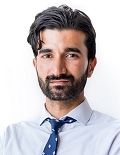
Education: PhD ’19, Duke University
Cornell Adviser: Christopher Barrett
External Partner: German Corporation for International Cooperation (GIZ)
Theme: Accelerating Energy Transitions
Katherine McClure
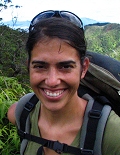
Education: PhD ’17, University of California Santa Cruz
Cornell Adviser: Steven Osofsky
External Partner: American Bird Conservancy
Theme: Advancing One Health
Tomasz Falkowski
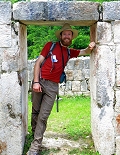
Education: PhD ’18, SUNY College of Environmental Science and Forestry
Cornell Advisers: Laurie Drinkwater, Johannes Lehmann
External Partner: Dana, A.C.
Themes: Increasing Food Security, Reducing Climate Risks
Gemma Clucas
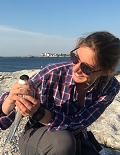
Education: PhD ’17, University of Southampton and University of Oxford, UK
Cornell Adviser: Amanda Rodewald
External Partner: Northeast Fisheries Science Center
Theme: Advancing One Health
Adekunle Adesanya
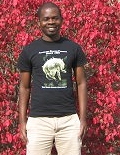
Education: PhD ’18, Washington State University
Cornell Adviser: Katja Poveda
External Partner:The International Center for Insect physiology and Ecology
(ICIPE), Kenya
Theme: Increasing Food Security
Five Postdoctoral fellows were selected - announcement
Aaron Koning

Education: PhD ’18, University of Wisconsin Center for Limnology
Cornell Adviser: Peter McIntyre
External Partner: Conservation International
Focus Area: Sustainable Agriculture and Food Systems
Tyler Harlan
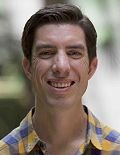
Education: PhD ’17, University of California, Los Angeles
Cornell Adviser: John Zinda
External Partner: Global Environmental Institute
Focus Area: Energy Transitions
Cynthia Bartel

Education: PhD ’17, Iowa State University
Cornell Adviser: Matthew Ryan
External Partner: The Land Institute
Focus Area: Sustainable Agriculture and Food Systems
Ben Augustine
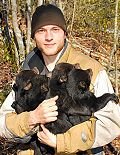
Education: PhD ’17, Virginia Tech
Cornell Adviser: Angela Fuller
External Partner: Wildlife Conservation Society
Focus Area: Computational Sustainability
Rafael Almeida

Education: PhD ’17, Universidade Federal de Juiz de Fora (Brazil)
Cornell Adviser: Alexander Flecker
External Partner: Wildlife Conservation Society
Focus Area: Computational Sustainability
Three Postdoctoral fellows were selected
Shaojun Zhang

Education: PhD ’14, Tsinghua University, China
Cornell Adviser: K. Max Zhang
External Partner: National Risk Management Research Laboratory, U.S. Environmental Protection Agency
Focus Area: Energy Transitions
Daniel Mutyambai
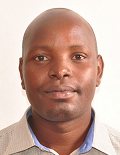
Education: PhD ’15, North-West University, South Africa
Cornell Adviser: Andre Kessler
External Partner: International Center of Insect Physiology and Ecology
Focus Area: Sustainable Agriculture and Food Systems
James Krueger
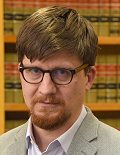
Education: PhD ’17, University of Wisconsin–Madison
Cornell Advisers: Gerald Torres
External Partner: Centre for Environmental Stewardship
Focus Area: Sustainable Agriculture and Food Systems
Three Postdoctoral fellows were selected
Mary Mitchell
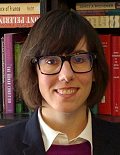
Education: PhD Candidate, University of Pennsylvania
Cornell Adviser: Annelise Riles
External Partner: Natural Resources Defense Council
Focus Area: Energy Transitions
Zoë Chafe
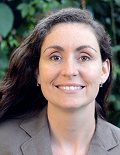
Education: PhD ’16, University of California–Berkeley
Cornell Advisers: Peter Hess
External Partner: Bay Area Air Quality Management District
Focus Area: Energy Transitions
Terrence Bell
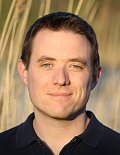
Education: PhD ’13, McGill University
Cornell Adviser: Jenny Kao-Kniffin
External Partner: Symbiota
Focus Area: Sustainable Agriculture and Food Systems
Four Postdoctoral fellows were selected
Thomas Wild
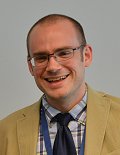
Education: PhD ’14, Cornell University
Cornell Adviser: Patrick Reed
External Partner: Natural Heritage Institute
Focus Area: Computational Sustainability
Jenny Goldstein

Education: PhD ’15, University of California–Los Angeles
Cornell Adviser: Sara Pritchard
External Partner: World Resources Institute
Focus Area: Sustainable Communities
Kathryn Fiorella
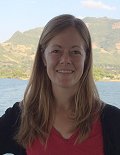
Education: PhD ’15, University of California–Berkeley
Cornell Advisers: Chris Barrett and Sera Young
External Partner: to be announced
Focus Area: Sustainable Agriculture and Food Systems
Subhonmesh Bose

Education: PhD ’14, California Institute of Technology
Cornell Adviser: Eilyan Bitar
External Partner: ISO New England
Focus Area: Energy Transitions
